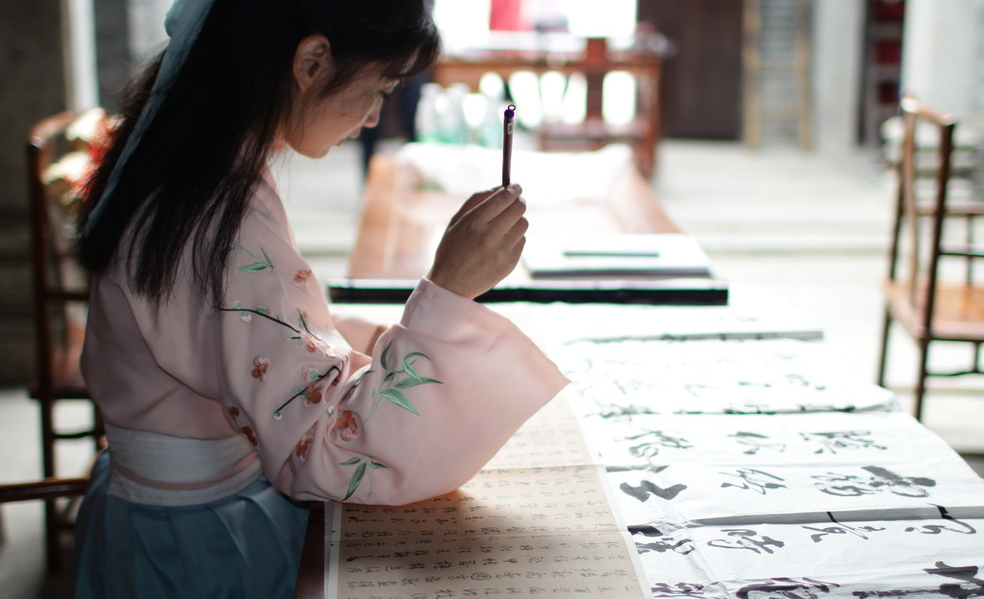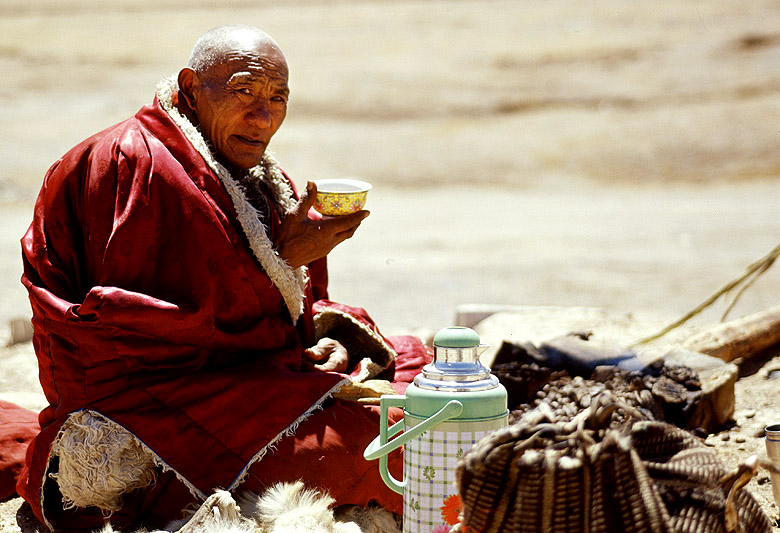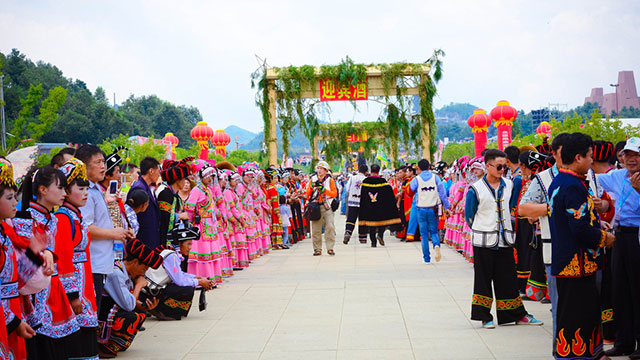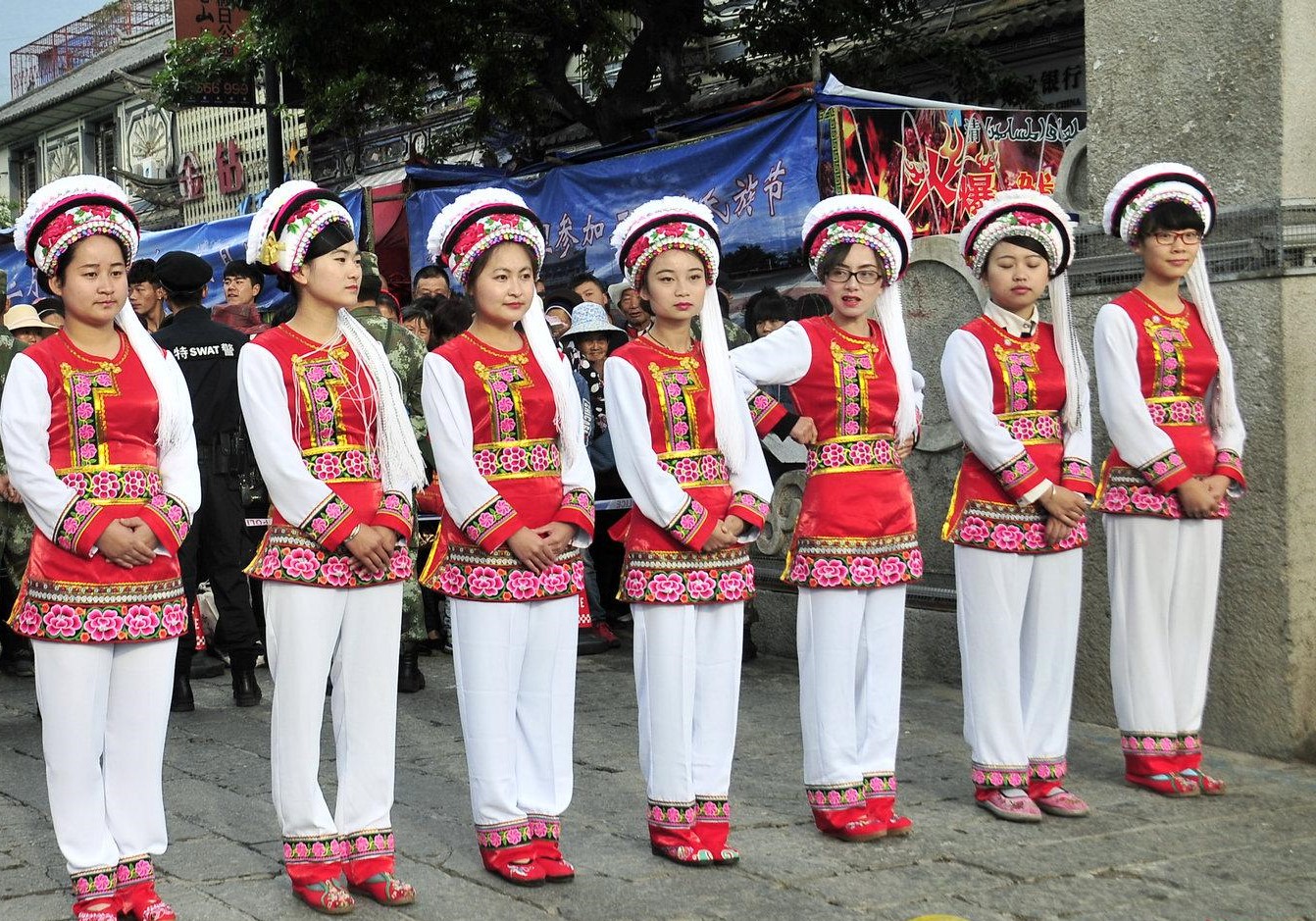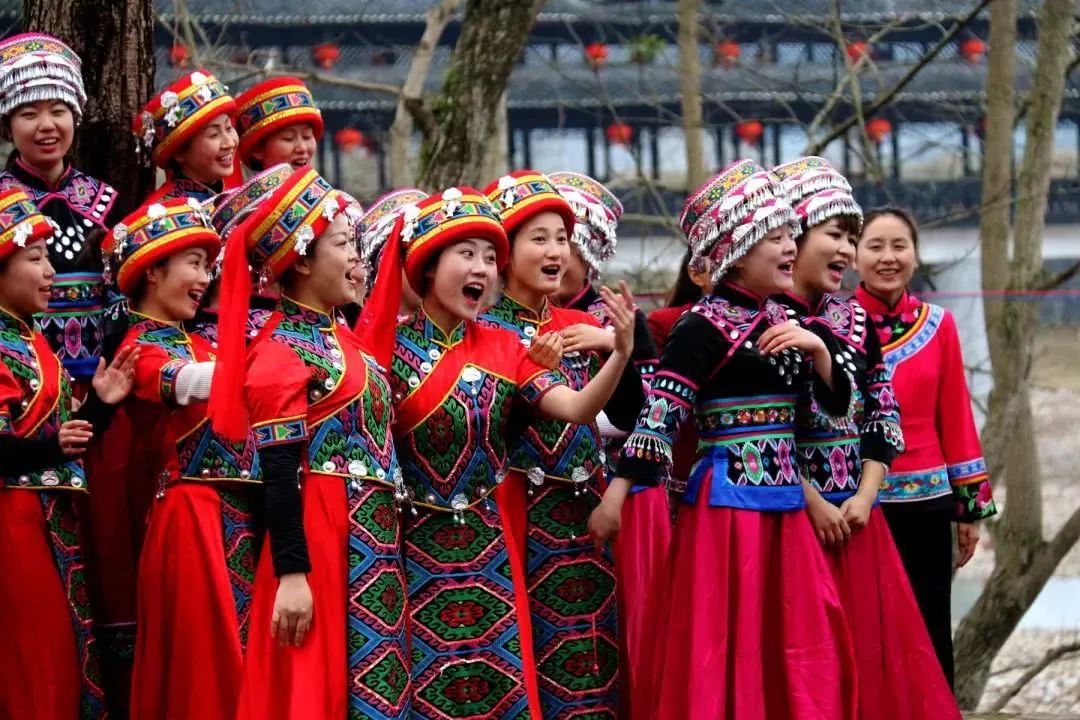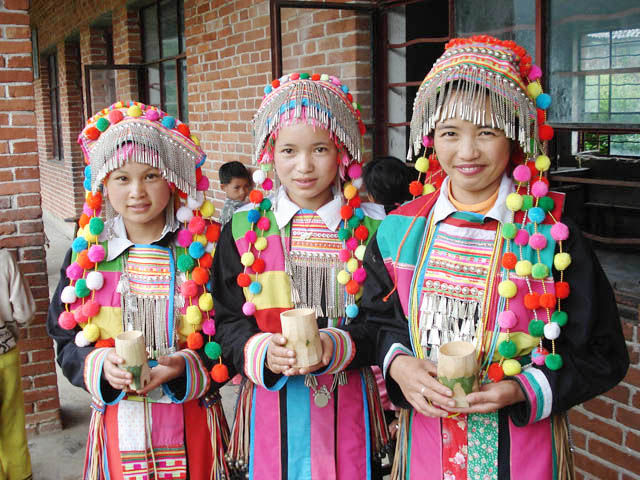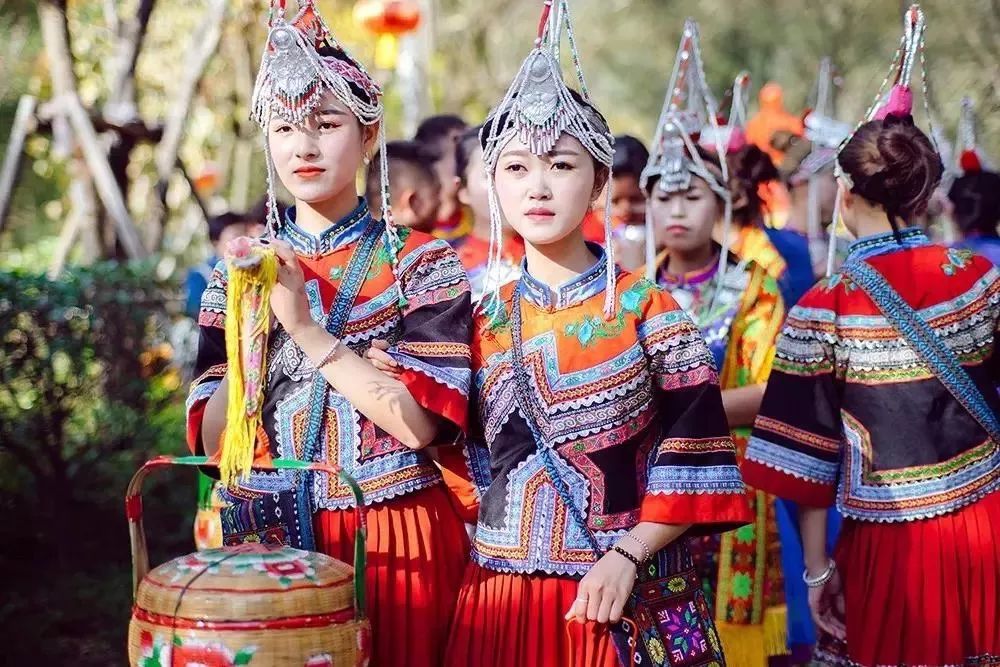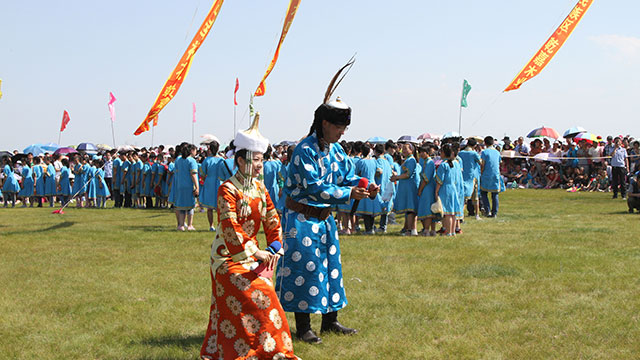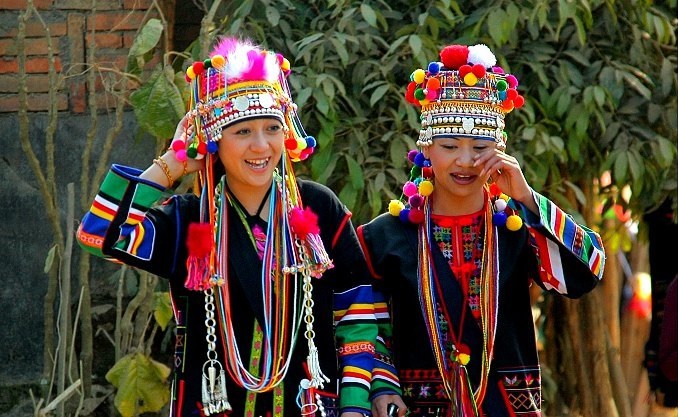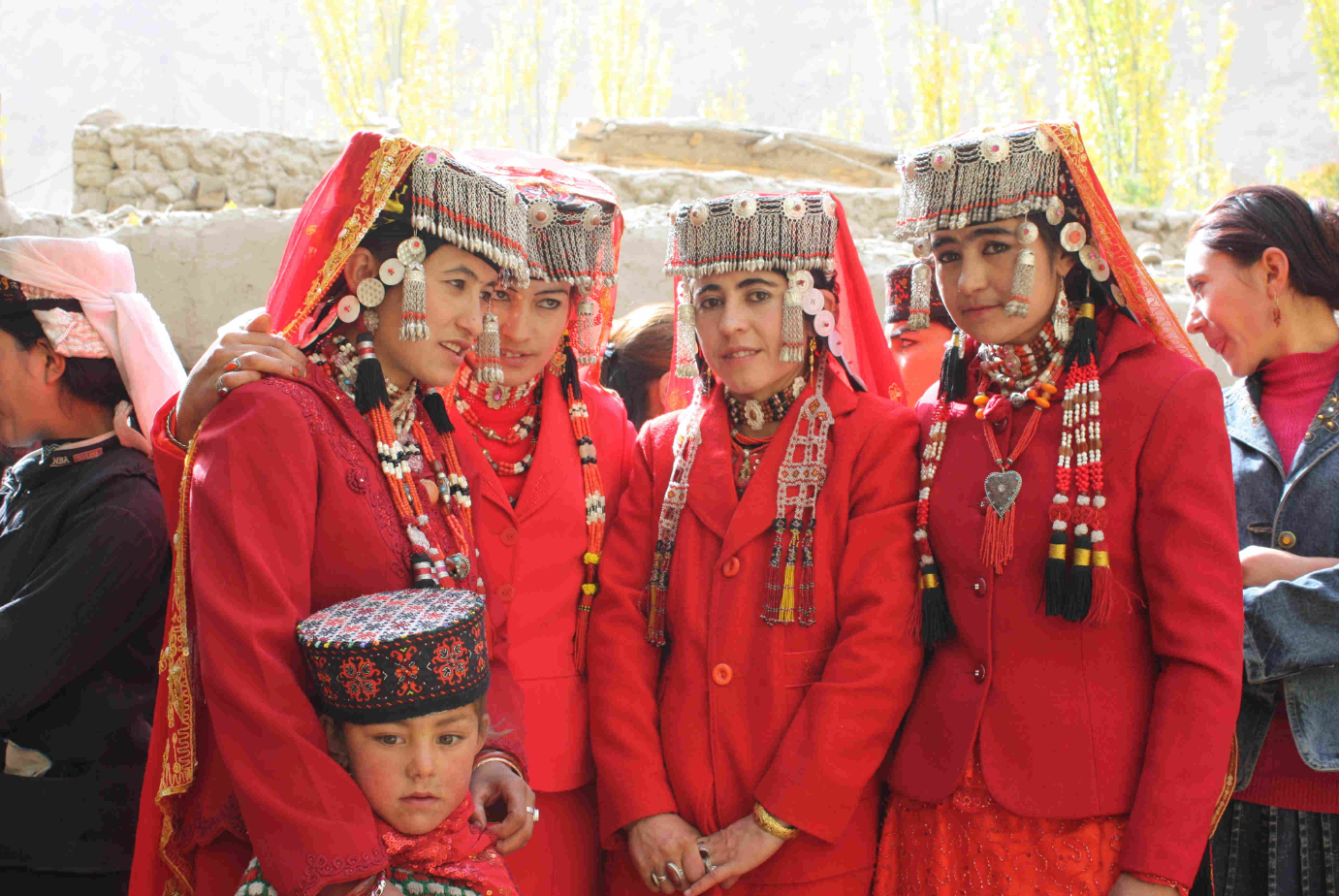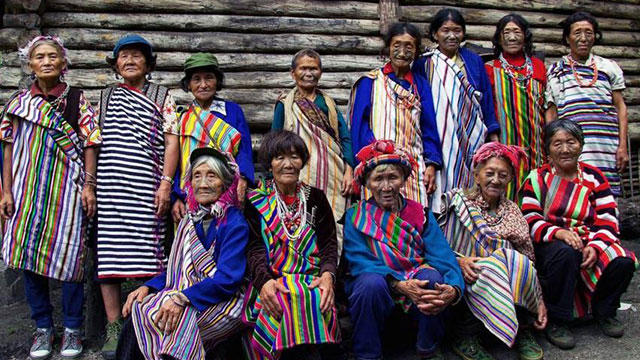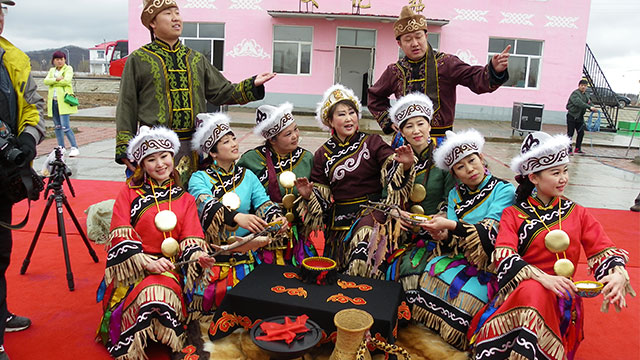Shui Nationality
Shui nationality has its own language and traditional characters. Shui language belongs to the Dongshui (Dongtai) language branch of Zhuang and Dong language in the Sino Tibetan language system. The ancient font of Shui nationality retains the characteristics of compatibility of picture characters, pictographs and abstract characters.
Shui people call themselves "Sui" (Su) ǐ)”, As for the origin of the aquarium, there are some theories, such as the descendants of Yin people, the origin of Baiyue (Guangdong and Guangdong), the migration of Jiangxi, the migration of Jiangnan, etc. Shuishu is the relic of Xia and Shang culture and the spiritual pillar of the aquarium. Fish is the totem of the aquarium, and rice soup fish is an important social custom of the aquarium.
The main Shui people live in the upper reaches of Longjiang River and Duliu river at the border between Guizhou and Guangxi. Sandu Shui Autonomous County, Libo, Dushan, Duyun and other counties and cities in Southern Guizhou are the main residential areas. Rongjiang, Danzhai, Leishan, Congjiang and Liping counties in Southeast Guizhou are the main diaspora areas. In addition, there are Shui villages in Hechi, Nandan, Huanjiang, Rongshui and other counties and cities in Northwest Guangdong and Fuyuan County in Yunnan Province Drop distribution.
According to the sixth national census in 2010, the population of aquarium is 411847.
Shui Nationality Wiki:
| Chinese name | Shui zu |
| Main distribution area | Guizhou, Guangxi, Yunnan and Jiangxi |
| languages | Water language |
| religious belief | Polytheism |
| written words | hydrology |
| Language genus | The branch of Zhuang Dong language family (Dongtai) of Sino Tibetan language family |
Family name
Shui people call themselves "Sui" (Su) ǐ)”, It is named because it originated in the Sui River Basin, so there is a folk saying that "drinking Sui water becomes Sui people".
The name of the Shui nationality is "Shui" instead of "Sui", which is related to the Fushui Prefecture set up in the Tang Dynasty. During the Kaiyuan period (713-741), the Tang Dynasty set up a Jimi Fushui Prefecture in the Huanjiang area at the junction of Guizhou and Guangxi, which mainly aimed at appeasing the ancestors of the Shui nationality. This is the confirmation of the ethnic group claiming to be "Sui" by the central dynasty, and the family name has been "Shui" instead of "Sui".
Since then, the names of Shui nationality have appeared in some private works and historical books. In the chiya by Kuang Lu in the late Ming Dynasty, there is the theory of "also Liao". In the historical books of the Qing Dynasty and the Republic of China, the titles of Shui Miao, Shui Yi and Shui Jia appear. In some historical books in the past, ethnic minorities were regarded as undeveloped ethnic groups.
In 1957, the State Council approved the establishment of Sandu Shui Autonomous County, which is called Shui nationality.
history
For the origin of the aquarium, there are some theories in the folk and academic circles, such as the descendants of Yin people, the origin of Baiyue (Guangdong and Guangdong), the relocation of Jiangxi and the relocation of Jiangnan. In fact, they are aimed at a certain period or branch in the development history of the aquarium, which have a certain historicity and rationality. According to the history of the origin of Baiyue, about after the Yin and Shang Dynasties, the ancestors of the Shui family migrated from the Central Plains to the south, gradually integrated into the Baiyue ethnic group, and gradually formed a dual structure with the Central Plains culture and Baiyue culture as the mainstream and the integration of North and South nationalities. There were many tribes living in Lingnan area and the southeast coastal area in ancient times, which were collectively referred to as "Baiyue" in the field of historiography. After the Shui ancestors moved south, they may integrate into the "Luoyue" branch of Baiyue, and then gradually develop into a single nation. Therefore, shuizu society retains the rich cultural relics of Yin Shang cultural circle and Baiyue ethnic group.
There have been two great migrations of Ju nationality in the history of Shui nationality. After the subjugation of the Shang Dynasty, some Yin people moved south to integrate into the Baiyue ethnic group. This is the first migration of the ancestors of the Shui nationality. In the 2nd century BC, after the Qin Dynasty unified China, it sent troops to suppress Lingnan. The second great migration of Ju nationality, the ancestors of Shui nationality, separated from the mother of Baiyue, flows back from the south to the upper reaches of Longjiang River and Duliu River, roughly forms the distribution pattern of later generations, and gradually moves towards a single nation. The ancestors of Shui nationality experienced relatively stable development for eight or nine hundred years, and gradually developed into a single nation in the Tang Dynasty. The name of Shui nationality is "Shui" instead of "Sui", which is related to Fushui Prefecture set up in the Tang Dynasty. During the Kaiyuan period (713-741), the Tang Dynasty set up Jimi Fushui Prefecture in the area around the river at the junction of Guizhou and Guangxi. According to the records of Geography in the book of Tang and the biography of Nanman in the book of Tang: "in the third year of Zhenguan, xie Yuan, the leader of the eastern Xie man, went deep into the Dynasty... He took his land as the Ying State, worshipped yuan Shen as the assassin, and led the governor's office of Guizhou state." "in the third year of Zhenguan, xie Yuan, the leader of the eastern Xie man, deeply set five counties: Dushang, Bolan, Yingjiang, Tuolong and Luo Gong." "in Kaiyuan, he set E, Lao, Fushui and other Jimi states." according to textual research, Yingzhou and its subordinate Dushang county are governed by Shangjiang Town, Sandu Shui Autonomous County; Polan county is governed by Hengfeng township of Sandu County, which is called shuipo in later generations; Yingjiang County is governed by Pingyong Township, Rongjiang County; Tuolong county is Taijiang River; Luogong county is Leishan county. Fushui Prefecture in the north of Yizhou is in the area around the river in the north of Guangxi.
During the Sui and Tang Dynasties, the border areas of Hunan, Guizhou and Guangxi were collectively referred to as "Xidong". The ethnic minorities living here were in the tribal and tribal stage, and some were engaged in slash and burn agriculture. According to the records of Fushui Prefecture in the history of Song Dynasty (including Fushui, Jingshui, duofeng and Gulao counties, mainly around the river in Guangxi and some areas adjacent to Libo County in Guizhou Province), we can see the outline of the social development of "jialongjiangju" aquarium. At that time, the agricultural production here had developed considerably. Rice was widely planted on the flat land, which was recorded as "planting rice like Hunan". The place where the chief lived was "building house and war shed" and protected by a fence. "The chieftains are all surnamed Meng... Minzequ, Liao, pan and Wu. They also grow paddy fields and collect fish." in order to resist the high-pressure rule of the feudal dynasty, the upper level of the Shui Nationality in Fushui Prefecture also organized local armed forces to "commit riots on the border" for many times, threatening the rule of the central dynasty. At the same time, the head of the aquarium also privately mints water books and big money. From Mengling, menghancheng, mengqianwei, menggai, Mengding, mengchenggui to mengchuan becoming emperor, Fushui prefecture has almost never stopped its activities against oppression. In the ninth year of Xiangfu of song Dazhong (1016), Fushui Prefecture man "counted the bandits and merged the state boundary, and the transfer made Yu Xianke appease. The group man resisted and invaded unceasingly". Later, he ordered Cao Keming, the governor of Pingzhou, to lead the army to recover and kill all of them. "The imperial edict takes Fushui Prefecture as Anhua Prefecture, Fushui County as Guiren County, and Jingshui County as Changning County". In order to prevent the Shui people from competing with the court again, the Song Dynasty not only changed the name of Fushui Prefecture, but also consciously relocated the Shui people to the Han nationality. According to the history of the Song Dynasty, "there are more than 700 people willing to move to the Han region, and the imperial edict was issued to divide the Xinjing Huzhou army in Guangxi to provide grain." the purpose of the Song Dynasty's decision is to divide and disintegrate the social strength of the Shui nationality and fundamentally eliminate the hidden dangers in the southwest. Since then, the aquarium society has declined day by day.
At the end of Song Dynasty and the beginning of Yuan Dynasty, Shui nationality had entered the feudal society. Mongolian nobles established the form of feudal lord system in the vast area of the upper reaches of Longjiang River, but still retained a strong color of rural commune. This is reflected in the fact that the Lord has no absolute control over the land within the jurisdiction, the personal attachment is not firm, and the members have a certain degree of independent autonomy in the "hole" or "village" of social grass-roots organizations. In the "cave" and "stronghold", there are their own leaders "Du Lao" to manage internal affairs. In case of war, they will beat bronze drums or blow ox horns, and the "Du Lao" will call members to participate in the battle. Members may freely use the mountains, forests and pastures publicly owned by caves and villages, but the reclaimed land shall be occupied by the cultivators. The tribute to the feudal lords also took the village as the burden unit.
The Yuan government implemented the policy of inviting and appeasing the southwest ethnic minorities and set up a set of ruling institutions from the road to the general office and the military and civilian government. In 1283, Qu lijisi, a political participant in Sichuan Province, used force to suppress the ethnic minorities in "Jiuxi and eighteen caves" in Southern Guizhou, and sealed the leaders of ethnic minorities as hereditary local officials to rule the people of ethnic minorities through them. Soon, the "cave chief" of the adjacent rotten soil and Chen Meng also accepted the title of the Yuan Dynasty, changed the two caves of Chen Meng and Hejiang into a state, and added Chen Meng and the civil comfort Department of the rotten soil army. It was stipulated that dansha, realgar, horses, rain felt, knives and other things should be paid to the feudal dynasty on schedule.
In the Ming Dynasty, the social economy of Shui nationality area had a significant development. In terms of agricultural production, due to the improvement of production tools, many new paddy fields have been opened in relatively flat areas. In the past, the mountainous areas where "slash and burn" farming was used have also been opened up as terraced fields, which has changed the habit of "not farming with cattle", built water conservancy, irrigated mu of fields, improved production technology and increased grain output. The development of productivity provides more surplus products. On the other hand, due to a large number of reclamation, there have been many "private fields" that do not pay the burden to the chieftains and soil items. Some emerging landlord classes have been divided among the farmers, and the Lord economy has gradually transformed into the landlord economy. Household handicrafts attached to agriculture have also developed significantly, especially handicrafts. Textile products can not only be self-sufficient, but also be sold in the market. The primary market that regularly goes to the market is also constantly forming, and there are large market towns. The universal setting of post stations objectively facilitates the exchange of business and travel, and has closer ties with foreign economic exchanges. With the large number of Han immigrants in Jiangnan, advanced production technology has been brought. The Shui people and the Han people learn from each other and get along well with each other, which has promoted the economic and cultural development of the Shui area.
The Ming Dynasty followed the method of enfeoffing local officials in the Yuan Dynasty and set up chieftains in Shui nationality areas. The Shui people not only pay taxes to the feudal dynasty, but also perform unpaid labor and various miscellaneous sects to the chieftain, tuqianzong and tumu, such as "Indian field", "pond field", "husband field", "drummer field" and "chopsticks field". The farmers who grow a certain field must bear the labor or pay a certain kind of material object, and those who grow a "husband field" must lift a sedan chair to the chieftain. All the waste, chickens and ducks, firewood and even chopsticks of the chieftain family should be paid regularly by the farmers. The chieftain had officials, troops, courts and prisons, and had the right to take life and death from the farmers. While strengthening the chieftain system, the Ming Dynasty gradually implemented "changing the land to the flow" in places where there were conditions for direct rule. For example, in the early Ming Dynasty, after the feudal dynasty eliminated the chieftains surnamed Meng, PI and Lei in Libo by force, it divided Fangcun, Mengcun and Qionglai village. In 1506, it was changed into a county and appointed Liuguan to rule. Under the exploitation and oppression of the feudal ruling class and chieftains in the Ming Dynasty, the resistance struggles of the Shui people and the people of neighboring nationalities arose one after another, more than a dozen times. Today, Ba Kai chieftain in Rongjiang county and Jia Zao Bai chieftain in Sandu county have also had many disputes with local Shui people. In 1432, under the leadership of Wei wengtong, the Shui people fought against the rotten chieftain; In 1479, the Shui people supported the struggle of the Miao people against the peaceful chieftain; In 1489, the Shui people besieged the military stronghold of suppressing the people, such as Yang Anbao.
During the 200 years from the early Qing Dynasty to the Opium War, the social economy of Shui nationality area has further developed. Agricultural production has been significantly improved. In Pingba area, the yield of rice per mu can reach more than 300 kg. There are a few independent handicraftsmen separated from agriculture, and small-scale handicrafts workshops have appeared in cities and towns such as rotten soil, sanjiaotun and Libo County. According to the records of the Jiaqing period, at that time, the manual textile technology had reached a considerable level. The twill cloth produced by rotten soil was called "Shunshui class" and sold in neighboring counties. Commerce also gradually developed. During the Qianlong period, there were as many as 14 rural primary markets and an endless stream of business trips within the jurisdiction of sanjiaotunzhou cave. In order to strengthen the rule over the Shui people, the rulers of the Qing Dynasty added floating officials in the chieftain area of the Shui people. At this time, the landlord economy developed considerably, and a large number of farmers' land was occupied by the landlord. By the early 19th century, large landlords with more than 1000 mu of land had emerged in Shui nationality areas to exploit the working people through land rent and usury. The heroic Shui people and the people of neighboring ethnic groups launched many struggles against the rulers of the Qing Dynasty and the exploiting class of the nation. In 1803, a group of corrupt officials such as Hu cangrui, the magistrate of Libo County, were all destroyed by Shui nationality farmers in Shuiyan on their way to office. From then on, the officials sent by the Qing government to Libo "were afraid and hesitant".
After the 1880s, imperialist forces went directly into the aquarium area. Farmers are forced to plant a large number of opium. Hundreds of thousands of opium are transported along the Duliu river every year, which destroys rural productivity. In the past, the traditional "Shuijia cloth" woven by Shui women was not easy to fade because of its solid quality, and its marketing was far and near. At this time, it was also hit by the import of foreign cloth and foreign yarn, and the traditional textile industry became a foreign yarn processing handicraft industry.
After the revolution of 1911, there was a slight development of national capital. Iron, mercury, antimony and other mines were set up in today's Sandu Shui Autonomous County, but they were finally monopolized by the Kuomintang bureaucratic capital. Comprador capitalists plundered the local specialties such as tung oil and gallnut, which were rich in Shui Nationality areas. The landlord level annexed a large number of land, and the land rent exploitation changed from "half to half" to 60% or even 70% of the landlord's income, Coupled with the exploitation of usury and hired workers, many farmers were forced to lose their homes. French missionaries set up some Catholic churches in Southern Guizhou. Even Bannan village, Jiuqian Town, Sandu county also built churches. The church colluded with the landlord class to bully and oppress the people.
The local warlords supported by imperialism fought scuffles year after year, bringing great disasters to the people. In 1922, when Yunnan warlords opened their doors, the Confucian ministry pulled more than 10000 civilian husbands through the Shui nationality area, and countless people died along the way. Warlords of all factions tried their best to incorporate and expand the armed forces of bandits, forming a trinity rule of warlords, landlords and bandits. From the popular ballads and proverbs at that time, we can see the situation in the Shui Nationality Area: "officials are like bandits, soldiers are like grates, and the security corps are like razors." "the poor have three knives on their heads, which are pressed by the officials, stripped by the landlords and burned by the bandits." during the 20-30 years under the joint rule of officials and bandits, the population of some areas inhabited by Shui nationality has decreased by 1 / 3, the countryside is desolate, and most working people live on fern roots, rice seedlings and quilts The miserable life of replacing salt with grey water.
The modern Shui people have carried out many revolutionary wars, among which the peasant uprising in the middle of the 19th century and the anti imperialist Patriotic Movement in the early 20th century. In 1855, under the influence of the revolution of the Taiping Heavenly Kingdom, the Shui people, under the leadership of Pan Xinjian, united with the surrounding Buyi, Miao, Dong and Han people to participate in the "Xiantong uprising". Tens of thousands of participants moved to southern Guizhou and Northern Guangxi and persisted in the struggle for 18 years. Wherever the rebels went, they brought down bureaucrats, landlords and bullies, abolished exorbitant taxes and miscellaneous taxes, and received the warm support of the people of all ethnic groups. Together with the Taiping army, the Nien army and the Hui people's uprising army, they formed a great storm of the people's resistance to the rulers of the Qing Dynasty. In March 1906, inspired by the criminal acts of imperialist missionaries in the Shui nationality area, the Shui nationality took up arms with the surrounding nationalities, fought for more than years, attacked Duyun house, opened the prison, rescued the victims, destroyed the church, and more than 100000 people participated in the struggle.
During the new democratic revolution, the Shui people fought against feudal warlords many times. In 1930, the seventh and eighth armies of the Chinese workers' and peasants' Red Army passed through Shui nationality areas, organized the masses, fought local tyrants, distributed grain, publicized the party's policies, and sowed revolutionary fires. The Shui people actively led the way and transported food and grass to the Red Army. From 1943 to 1944, the Shui people besieged Sandu County in order to resist labor, grain and military recruitment. The encirclement and annihilation of the Kuomintang Huang Yao troops in Duyun taotou area set off a climax of the struggle against the Kuomintang rule. In late November 1944, the Japanese invading army invaded Guizhou, and the "Qiannan incident" broke out. During the 18 days when the Japanese troops marched in Southern Guizhou, they trampled on Libo, Sandu, Dushan, Danzhai, Duyun and other counties and cities, and passed through the Shui nationality area. In order to defend the country, the brave Shui people fought back and fired the first and last shots of Guizhou Folk Anti Japanese. In this struggle against aggression, the Shui people and the people of all ethnic groups around them spontaneously organized a battle, killed more than 100 Japanese troops, seized a large number of ordnance, and composed a magnificent eulogy of defending the country. In 1949, pan Wenxing, a progressive Shui intellectual, contacted Qin Jie, a Buyi intellectual, and secretly organized armed guerrillas to conquer Libo County, which was occupied by the Kuomintang, and handed it over to the Chinese people's Liberation Army.
Culture
faith
The belief culture of Shui nationality belongs to the category of primitive religious belief. Shui people believe that all things have spirits and worship many gods. Nature worship, ancestor worship and God worship constitute the core of Shui nationality belief.
In Shui nationality society, whether it is the worship object of primitive religious belief, or the worship form, belief ceremony, or the content, form and inheritance mode of primitive morality, it clearly reflects the characteristics that belief culture and folk knowledge are mixed and inextricably linked with each other.
diet
The belief culture of Shui nationality belongs to the category of primitive religious belief. Shui people believe that all things have spirits and worship many gods. Nature worship, ancestor worship and God worship constitute the core of Shui nationality belief.
In Shui nationality society, whether it is the worship object of primitive religious belief, or the worship form, belief ceremony, or the content, form and inheritance mode of primitive morality, it clearly reflects the characteristics that belief culture and folk knowledge are mixed and inextricably linked with each other.
Clothes & Accessories
Shui nationality taboos red and yellow in clothing, especially the hot colors of red and yellow, and likes three cold colors of blue, white, blue and yellow. Shui people don't like brightly colored clothes, but like light and elegant colors, which expresses Shui People's unique clothing aesthetics, that is, simplicity, generosity and practicality.
Shui Nationality Women's clothes are mostly sewn with Shuijia cloth. They are collarless, big breasted, semi long shirts or long shirts. The long shirts are over the knee and generally do not embroider lace. The festival and wedding costumes are very different from ordinary times. Usually, the shoulders, cuffs and knee bends of trousers are inlaid with embroidery ribbons, and colorful patterns are also on the headscarf. Wearing a silver crown, a silver collar on the neck, a silver bracelet on the wrist, a silver elegant collar on the chest, silver earrings on the earlobes, and embroidered shoes on the feet, it is elegant and quiet.
The aquarium man wears a large neckless blue cloth shirt and a melon skin hat. The elderly wear a long shirt, with his head wrapped in lining and his feet wrapped in leggings.
Architecture
Shui nationality villages are mostly inhabited by the same blood clan. When building a house, we usually choose good luck according to the owner's birthday. The traditional house structure of Shui nationality mostly belongs to the ancient Yue people's mortise and tenon "dry fence" architectural legacy of "people living in buildings and stairs", which evolved from "living in nests according to trees".
After leveling the foundation, the traditional pole railing house first builds a stable load-bearing platform with a thick column head of 2m high, and then sets up a high-rise wooden raft house frame on it after setting up a thick floor. The bottom floor is mostly used for feeding livestock, installing stone pestles, stone mills and stacking sundries. Ganlan wooden house is very popular because it not only has the functions of moisture-proof, insect and snake proof and anti-theft, but also saves land. In order to accept the blessing and welcome the auspicious, every link, such as the selection of house foundation, the orientation of sitting on the mountain, wood preparation, girder cutting, column beam, housewarming and fire making, generally acts in accordance with the taboos of Shuishu.
The erection column is usually used in mortise. "Mao is Mao", which contains the meaning of fertility, opening and development in Shuishu. Master carpenter would also like to invite the founder of Shuishu who is in charge of making "liuduo Gong" to bless him and offer sacrifices with fish and rice. After the new house was put on the beam, the dyed cloth of the owner's family hung down from the beam and led the horses and buffalo carrying ears of grain, new clothes, cloth, scales, pockets and other items into the new house. On the same day, I made a fire in the hall. I was proud of the flourishing smoke and fire, and adopted the law of witchcraft similarity, in order to achieve the purpose of developing people and expanding financial resources, and save the trouble of choosing good luck and moving to other places.
language
Shui nationality has its own language and traditional characters.
Shui language belongs to the Dong Shui (Dong Tai) language branch of the Zhuang and Dong language family of the Sino Tibetan language family, with 71 initials, 55 finals and 8 tones. Shui language is related to Dong language, Maonan language, Buyi language, Mulao language, Zhuang language, Dai language and Li language in the Zhuang and Dong language family, especially close to Dong language, Maonan language and Mulao language, and has many homologous words. Compared with Zhuang and Dai languages of the same language family, Shui language has less internal differences. Shui people everywhere can generally talk to each other in Shui language. Shui language can be divided into three local language areas without dialect differences. The first is the Sandong local language area, represented by the water language of Bannan village, Sandong township. The second is Yangan dialect area, represented by Jianai village, Yangan. The third is the Pandong dialect area, represented by the water language of Pandong village, Yanghe township.
The ancient characters of Shui nationality, as well as the ancient books mixed with belief culture and folk knowledge written in this ancient character, are generally called "lesui / gesui" in Shui language and translated into "Shui book" in Chinese. Shuizu ancient Chinese font retains the characteristics of compatibility of picture characters, hieroglyphics and abstract characters. Most of the more than 2500 single words are variant characters. In daily life, Chinese is commonly used in Shui nationality areas.
In terms of language appellation, Shui language communication is widely used in Shui nationality areas. In daily communication, people follow the virtues of respecting elders and the elderly. The daughter-in-law in the village is generally called male and female when she sees the elder grandparents, and parents when she sees the elder parents. After marriage and childbirth, they are used to calling their children by their children's names as so and so's father and so and so's mother. Within three or five days of the arrival of the new daughter-in-law, in addition to carrying water for the bridegroom's house every morning, we should also carry a load of bride's water for each family in close proximity, which not only shows the bride's virtuous and filial piety, but also gives the family the opportunity to know the bride.
Water book
Shui Shu is the general name of Chinese translation of ancient Shui Characters and their works.
Shuishu classics is a great work of folk knowledge, belief and culture of Shui nationality. It is known as the "book of changes" and "Encyclopedia" of Shui nationality. The content of Shuishu is broad and profound. In addition to directly reflecting the astronomical calendar and primitive beliefs of Shui nationality, it is also compatible with many aspects of Shui nationality philosophy, literature and art, language and text, array offensive and defensive, ethics and morality, production and life. It has become a precious classic for studying Shui Nationality's history and culture, as well as religion, history, ethnology, folklore Precious materials for the study of linguistics and other disciplines. Among them, the numerous ghosts and gods of the aquarium recorded in the belief culture not only reflects the pan divine concept of all things of the aquarium, but also reflects the experience accumulation of the ancestors of the aquarium in understanding nature, transforming nature, understanding society and transforming society. It is a painful memory of failure rather than success.
As the essence of the traditional culture of Shui nationality, Shui Shu is an important carrier of national spirit, national cohesion, national affinity and national sentiment. It has become the spiritual pillar of the whole nation's belief and has become an important spiritual link for maintaining the branches of the Shui nationality.
In 2002, Shuishu was included in the first batch of "Chinese Archives and literature heritage list" by the state archives administration and the central archives, and collected as key ethnic ancient books. In 2006, Shuishu was listed in the first batch of national intangible cultural heritage list.
etiquette
Hospitality etiquette, Shui nationality emphasizes wine, smoke and tea.
When guests arrive, they should try their best to entertain them. Generally, guests are treated with meat dishes, important relatives and friends kill chickens and ducks, and VIP guests kill pigs. After sitting at the table, dip a drop of wine with chopsticks and order it on the table to show respect for ancestors and gods before enjoying it. It is an important etiquette of aquarium to honor guests with chicken head and duck head.
Drinking wine and liver courage wine are rare etiquette for guests to toast. Aquarium treats guests with wine, and has the unwritten rule of "guests don't stop until they get drunk". The aquarium has a special form of drinking wine. All drinkers are asked to raise their glasses with their arms, hold their wine cup in their right hand and reach out to the drinker on the right, while their left hand takes over the cup handed over by the drinker on the left, so as to form a closed circle of mutual drinking between the dinners. Usually the elderly, venerable or guests drink first, while the rest shout three "yes -" congratulations to cheer up.
Killing pigs and entertaining guests usually have the etiquette of liver and gall wine, that is, sintering the whole leaf pig liver attached to bitter gall with fire, and offering a sacrifice after cooking. When drinking, inject bile into the wine. Liver gall wine shows that the host treats guests sincerely and symbolizes sincere care, bitterness and happiness. In addition, bitter gall has the effects of clearing fire, brightening eyes, reducing blood pressure and helping digestion. Drinking an appropriate amount of liver gall wine is beneficial to the body.
When a married woman returns to her mother's house to visit her relatives, her family neighbors either give her colored glutinous rice or zongzi, often with a chicken and duck leg, a piece of cooked pork, several Kang fish and several pieces of fried tofu. These rituals not only express closeness, but also deepen emotional contact.
Shui nationality emphasizes glutinous food. Picking glutinous ears (also known as Milian and Gulian) is an important gift for weddings and funerals.
calendar
Shui nationality has its own calendar - Shui calendar.
The water calendar is basically the same as the summer calendar. The difference is that the water calendar takes August as the end of the year and September as the beginning of the year.
literature
The mainstream of Shui nationality literature is folk oral literature. This is the result of the aquarium people's understanding of nature, transformation of nature, summary of production and life experience and self entertainment. These achievements historically and vividly reflect the colorful social outlook of aquarium, as well as its pursuit and orientation for a better life.
Shui folk literature can be divided into rhyme style and prose according to the classification of style.
The works of rhyme style are quyi "xuzao" and ballads combined with rap. According to its content and form, prose can be divided into myth, legend, story, fable, fairy tale, proverb, riddle and so on.
The creation myth and legend of Shui nationality is the literary creation of Shui Nationality Ancestors in ancient times, which mainly focuses on the themes of how heaven, earth, mountains and rivers, sun, moon and stars are formed, and how humans, animals and plants originated. These ancient creation myths and legends with great themes, broad scope and profound content are the most brilliant and brilliant works in the history of aquarium literature. These works mainly include xianpo yawa opening heaven and earth and creating all things, human dragons, thunder and tigers competing for the world, Yin Gong (EN Gong) stepping on heaven and earth, and the brothers and sisters of the remnant of the flood plain Rebuilding Human smoke, etc. Genesis myth, ancient songs have advantages, prose has not been sorted out, and relatively complete works have been published.
Yawa, or translated as Yawu, Yamata and Yafu, is the great immortal of Shui nationality who created everything. "Ya" is a special word for older women, which means Po and milk. "WA" is its name, or xianpo yawa. Xianpo yawa is the most authoritative God in the ancient myths of Shui nationality. He has the greatest ability to create people and everything. His prominent and sacred position is unparalleled in myths, legends and ancient songs. "Gong en Dian Heng" is a fairy tale of male immortals who stepped on the earth and repaired the world after the fairy woman yawa.
The aquarium myth "human dragon, thunder and tiger compete for the world" has artistic characteristics. People and dragons, thunder and tigers are compatriots and brothers. Later, people quarreled over the division of property such as Yisui millet, Pingba fields and huts. Therefore, the immortal came up with an idea to let the four brothers compete better. Whoever wins will dominate the world. The story vividly reflects the homology of man and beast, the emergence of private ownership, the demise of public ownership, the development of planting industry, and the simple concept that man uses fire to defeat all his opponents and become the master of the world.
Art
music
Musical Instruments
Aquarium musical instruments include bronze drum, leather drum, Gong, Lusheng, huqin, suona, etc. among them, bronze drum has the most national characteristics. In history, clans and tribes fought against each other, taking beating bronze drum as an alarm signal, and then blowing ox horn instead. Bronze drum was once regarded as a symbol of power and wealth.
Quyi
Shui nationality folk art, evolved from the allegorical double song "xuzao", is an art form separated from the traditional Shui nationality songs with a certain performance nature.
Shui folk art is performed by both sides, mainly singing and harmony. Before singing, say a short narrative in a simple performance, a story similar to a small preface, and then sing in harmony. For the longer folk art, vernacular is often inserted in singing. This kind of speaking, singing and simple performance are often organically integrated, full of philosophy, interest and joy.
His representative works include "Dragon Girl and fish Lang", "tiger fish Rainbow Dragon", "Crow and white crane", etc.
ballad
According to the content, Shui nationality ballads can be divided into ancient songs, production songs, custom songs, etiquette songs, scenery songs, wine songs, funeral songs, bitter songs, love songs, marriage songs, etc. According to the form, it can be divided into double songs, single songs, stump songs, tune songs, heckle songs, etc., and most of them are double songs and single songs. Some people used to call the songs sung at the banquet wine songs or big songs, while the songs sung in other venues were called small songs.
The sentence structure of Shui nationality ballads varies from seven words, four words, five words and six words, and most of them are seven words. Seven character sentences are three or four character stanzas. Ballads pay great attention to rhyme. There is a saying that "there is no rhyme without song, and there is no song without rhyme". The rhyme is free, alliteration, abdominal rhyme and tail rhyme are intertwined, and the rhyme changes quickly. People call it the loop intertwined running water rhyme method.
Water songs often use metaphors, especially metaphors, followed by personification, repetition, parallelism, rhetorical questions, questioning and so on. With the in-depth spread of Han culture, Duyun City and other areas often sing Han seven character folk songs, but funeral songs are still sung in Shui language.
dance
The folk dance arts of Shui nationality include copper drum dance, horn drum dance, Lusheng dance, Dou Jiao dance, etc. dance is added to the fun during festivals.
Two actors wear bull head props and play Lusheng dance music in the crowd. They form a circular dance ground with female dancers. The horn performers make various horn fighting gestures to vividly perform the bullfight in life.
The Lusheng dance of aquarium is played by men, and the Lusheng dance is led by women. With the change of Lusheng melody, women follow the lead dancer's dance posture to change the same action.
Aquarium horn drum is named after a pair of buffalo horn big leather drums implanted at both ends. During the dance, under the guidance of horn drum and bronze drum, boys play Lusheng and girls dance after them. Meanwhile, dance content of bullfighting, harvesting and love between men and women is also inserted.
workmanship
Aquatic handicrafts include paper cutting, embroidery, printing and dyeing, carving, etc. The stone carvings of the aquarium are quite famous.
The most distinctive embroidery process of Shui nationality horsetail embroidery was listed in the first batch of national intangible cultural heritage protection list in 2006. Horsetail embroidery uses horsetail as raw material, and the white silk thread is tightly wound on horsetail silk by hand to become a white prefabricated embroidery thread similar to bass strings. Then, according to the traditional pattern, the white embroidery thread is coiled and embroidered on the outline of the pattern, and the middle part is filled with colorful flat threads prepared by 7 ~ 9 colored silk threads. Horsetail embroidery strap is mainly embroidered by horsetail embroidery, It integrates some other embroidery masterpieces, which embodies the exquisite skill of Shui nationality embroidery.
In addition, Shui nationality embroidery also includes plain embroidery, hollow embroidery, knot thread embroidery, spiral embroidery, twist embroidery, wrinkle embroidery, etc.
custom
production
Agricultural production in aquarium areas is based on small families. The main production tools include: plow, rake, rake, weeding rake, seedling rake, treading plow (walking plow), crowding, weeding, digging hoe, shovel hoe, hand hoe, axe, firewood knife, sickle, saw sickle, picking knife, grain barrel, wood hammer, hammer, water roller, pounding pestle, shoulder pole, cutting pole, chisel, push plane, saw, spear, bow and arrow Iron clip, shotgun, artillery, etc. Among them, it is worth mentioning to pick the knife and step on the plow (step plow). The knife is mainly used for picking glutinous rice, red barnyardgrass and balsam grass fed to cattle. When picking, hold a knife in your right hand, one ear or one knife at a time to pick the picked articles, and then end them into a handful for easy handling or drying. Stepping on the plow is suitable for deep ploughing in mountainous areas. It is labor-saving and does not step on the soil. It is very popular with farmers. Agricultural work, generally before winter, dig and soak the winter field and turn the rice stubble field, let the ice and snow loosen the soil and kill pests. After winter, hurry to cut grass and accumulate fertilizer. When spring is coming, we are ready to repair ponds, canals and ditches. In ancient times, the development of terraced fields in mountainous areas was mostly carried out in the slack season in winter.
Aquarium has a long history of planting rice, forming many strong rice related customs. The Shui calendar is based on the rice phenology. The Mao Festival and Duan festival of the Shui are the grand festival formed by rice planting and harvesting. In the past, it was believed that in the key stage of rice production, winning the favor of the God of rice can obtain a good harvest of rice. Therefore, in each key stage, from soaking seeds, sowing seedlings, planting seedlings to eating new harvest, it is often necessary to choose good luck according to the water book. Before opening the seedling door, bring two rice seedlings home to offer sacrifices with fish, meat, wine and rice. Please invite the well-dressed young daughter-in-law to offer sacrifices and murmur to the gods to bless the high yield of rice: "other people's rice is picked with a knife, and my rice is cut with an axe. The axe cuts a pile, and the knife is slightly pointed...". Then, the daughter-in-law took the seedlings to the field and planted them for a few rows. Only then did other women dressed up and on standby go to the field to work. The ceremony of opening the seedling gate not only respects the God of rice, but also uses the witchcraft principle of the law of similarity to transfer the vigorous fertility of young women to rice and pray for greater yield.
Aquariums worship fish, which is a totem worship in most aquarium areas. Fish farming in ponds and rice fields are important skills and characteristics of aquarium areas. People use the skills of laying eggs of field fish and dividing eggs with rice straw to master the methods of flood and beast harm to fisheries, so as to achieve a double harvest of fish and rice. Therefore, rice soup fish has become a traditional custom of the aquarium.
festival
There are more than 20 festivals at the age of Shui nationality, such as Dragon Boat Festival (borrowing and eating), Mao Festival (borrowing MAO), forehead Festival (borrowing), Su Ningxi (borrowing Ningxi), Jingxia Festival (Jingxia and Baixia), Spring Festival (borrowing recommendation), Qingming Festival (hanging green and hanging Society), Dragon Boat Festival (borrowing king), Bronze Drum Festival, Bathing Festival (June 6), yellow rice Festival, pepper Festival, white dragon sacrifice in February, dragon sacrifice in March Offering sacrifices to the earth in June, offering sacrifices to the mountain gods in June, picking up and seeing off the ancestors in July and a half, the Mid Autumn Festival, the Double Ninth Festival, pounding cattle cake in October, worshiping the temple (worshiping Bodhisattva, Ge Shan and Shan), Yu monsters (Yun Niang), eating new festivals (biting Li and boiling Li), etc.
Duan Festival is the most solemn festival of the Shui nationality. The Shui people celebrate this festival as the Spring Festival of the Han nationality. Duan Festival, called "borrowing" in Shui language, means eating. It is a new year's festival for the beginning of the new year, farewell to the old and welcome the new year, celebrating the harvest, sacrificing ancestors and gathering relatives and friends. In 2006, "Duan festival of Shui Nationality" and "Mao festival of Shui Nationality" were listed as the first batch of intangible cultural heritages at the national level and Guizhou Province. Duan Festival is the festival with the widest range, the largest number, the longest duration and the largest number of batches of aquariums. It is known as the biggest annual festival of aquariums, and it is also the longest annual festival with the largest number of batches in the world. The Duan Festival is celebrated in December at the end of the lunar calendar and the first month of the new year. It corresponds to August and September of the lunar calendar. It is the time when osmanthus fragrances and rice is ripe. In ancient China, the first month of the new year is called the end month, and the first day of the end month is called the end day. So far, aquarium still calls it so. Meat should be avoided in offering sacrifices to ancestors on the Duan Festival. Fish wrapped with leeks is a traditional dish. In addition to rich food, ancestor worship also places production tools such as hoes, plows and sickles, so as to inspire descendants to carry forward the past and forge ahead and develop happiness through labor.
Duan festival of Shui nationality is a relic of tribal celebration of ancient rice phenology. In Shuowen Jiezi, written by Xu Shen of the Eastern Han Dynasty, the year was interpreted as "Gu Shuye." Gu Shuye celebrated the new year. Shui Nationality's water calendar and grand Duan Festival accurately interpret the original meaning of the Chinese character "Nian". The Dragon Boat Festival takes the day of Hai as the backbone to calculate the festival period. In ancient times, it was divided into nine batches, and now it is divided into seven batches. According to the region or clan villages, it takes turns to celebrate the festival. During this period, there are local branches to celebrate the festival on the afternoon, the weekend and the unitary day. The end section is separated from the beginning to the end. Generally, the annual formation lasts more than 50 days, and the leap year is more than 60 days. The first batch of Duan Festival starts from taotou area of Duyun City, and the next six batches of Duan Festival turn to Shui people in Sandu County, Dushan, Libo, Rongjiang, Danzhai, Leishan and other counties. At the end of the stage, the villages beat copper drums, skin drums, played Sheng and sang all night and the end of the month. Relatives, friends and surrounding nationalities came to visit and congratulate, and the Shui nationality mountain township was immersed in a happy atmosphere. Duan Festival horse racing is the legacy of the war of Shui ancestors in the birthplace. It has gradually evolved into a major mass entertainment activity. It is also a unique custom of the southern nation. The horse race was held on the agreed "end slope". Men, women and children in holiday costumes gathered here from all directions. When the chief priest of the runway pulled out the straw marker and shouted "start, new year and road opening", the riders whipped their whip and hoofed and raced with joy. There are also literary and artistic performances on "duanpo" and various commodities are sold. It has become a grand occasion for people's emotional and material exchanges.
Forehead Festival, which means eating forehead, is the annual festival of Shui people in Yongkang and Lajiao areas of Libo County. Except for no horse racing activities, the time and connotation of the festival are similar to Duan Festival.
Mao Festival, called "borrow Mao" in Shui language, means eat Mao. It is celebrated in four batches from September to October of Shui calendar (corresponding to May and June of the lunar calendar) after the end of summer harvest and summer planting. It is one of the major festivals to wish a good harvest of rice and population growth. The first three batches are distributed in water conservancy, dongtuo, shuipu and other places in Libo County. The fourth batch of the most grand Mao Festival is Guanwei in Jiuqian Town, Sandu county and Yongkang, Libo County. The festival is regarded as "the most vigorous season of green life" in Shuishu. In the Mao Festival, the local Zhi Mao day is the festival period, the Xin Mao day is the auspicious day, and the Ding Hai Day is the worst day. I'm worried that the drought will seriously affect the harvest. Offering sacrifices to ancestors, rice seedlings, praying for rain and singing dues are the main contents. It is a traditional festival to pray for high rice yield and population proliferation. Maojie and maopo in Shuige village of Sandu county have been regarded as important tourism and cultural development.
Suning Festival, transliterated in Shui language, means the ugly day in April of the Shui calendar. The April of the Shui calendar corresponds to the December of the lunar calendar. It originates from the ancient festival of sacrificing the biological mother. It is known as the women's and children's day of the Shui nationality. It is a new year's festival in bankong, Jiyong, Heyong village, Sandu County, Guizhou Province and huozhai village, adjacent Dushan county. During the festival, people visit each other to celebrate, but the children have a lot of fun. They carry special small baskets and go door-to-door in teams to beg for auspicious New Year's dinner. They were warmly received by people and distributed colored glutinous rice, meat pieces, dried tofu and red eggs to everyone.
The Bronze Drum Festival is a festival celebrated by Shui people living in Jichang and Yanghe townships of Duyun City on the first Mao day after the Qingming Festival in Yakou village, chenmengpo. It is said that when the ancestors moved in, tribal struggles were frequent and there were groups of tigers and leopards. After efforts, the disaster was relieved. The villages gathered and agreed to meet Chen Mengpo on Mao day after the Qingming Festival to celebrate the victory. In addition, there is also the Bathing Festival in the hot spring in Yangchang area of Dushan County on June 6 of the lunar calendar, and the ancient "Xia Festival" to honor the rain and water god in Sandu, Libo and other places. There are also festivals for the aquarium in Gugan Township, Fuyuan County, Yunnan Province, such as offering sacrifices to the white dragon on February 2 (Zhonghe Festival, or offering sacrifices to the little white dragon), offering sacrifices to the dragon in March (the earth branch has celebrated the festival, which is the legacy of the ancient Shangsi Festival), offering sacrifices to the land in June, offering sacrifices to the mountain gods in June, etc. Pray for good weather, good years and peace in the village.
marriage and love
The marriage of Shui nationality follows the traditional customs and adheres to the principle of no marriage by blood of the same clan and the marriage of different families with different surnames. "Parents' orders and matchmakers' words" are still the mainstream of male and female youth marriage in Shui nationality areas. Pay attention to matching families and pay attention to marriage. Even in modern times, it is common that love is not very free and marriage is difficult to be completely independent. The Shui nationality practiced monogamy very early, and the phenomenon of concubinage in the feudal era was also very few. The scope of marriage agreed upon by the Shui Nationality in ancient times was very serious, resulting in various legends such as inverted planted fir, inverted planted maple and broken surname marriage. At the same time, it is closely connected with the local customary law, so there is the proverb "South low house, can't eat", that is, the mourning meat under the eaves of the same blood family can't eat. Special attention is paid to the cohesion within the marriage group. Even if they are separated for a long time, they can't start a marriage. In violation of the above principles, the most severe punishment in customary law is the burial punishment, and no desperate cases have been found. Fish is the totem worship of aquarium. In marriage customs, fish often appear as keepsakes and sacred objects. When the marriage was concluded, when the matchmaker was invited to propose marriage in Libo, Jiuqian and other places, the man's mother quietly placed several small dried fish wrapped at the bottom of the bamboo basket containing gifts. When the woman's mother receives the gift, she also first checks whether there are small dried fish at the bottom of the basket. If you agree to marry, accept gifts and dried fish. Before the bride leaves the cabinet, there must be more fish on the ancestral banquet. The bride also has to eat a chopstick of fish to get the blessing of her ancestors. When welcoming the wedding, the woman should see the keepsake such as the fish cage and the Vajra leaf symbolizing the big fish brought by the man before she can send the wedding. When welcoming relatives to the door, we should bless them with a fish water tank, that is, use a new small tank to hold well water and two small fish, and put them at the door of the door and the new house to bless the new couple like a fish in water, love white heads, and obtain the vigorous reproductive ability of fish. In order to make the family prosperous and the nation strong, the custom of fish as a keepsake and sacred object of marriage has been inherited from generation to generation in the Shui society.
After the woman is allowed to kiss, she usually has to eat the marriage recognition wine and engagement wine. The man sends a fat pig, silver jewelry, gift money, clothing, brown sugar and other gifts to the woman's house to disclose the marriage news. It is even more spectacular to eat big wine and receive the wedding gift. Welcoming the bride into the house, the groom's family all retreated outside the house and opened the door to greet her. Outside the gate are firewood blocks, or bamboo baskets and knives for cooking. When the well-dressed bride comes to the gate, she grabs the firewood or basket outside the door and pushes the door into the house, symbolizing the home owner who returns from work, and creates a happy new life through work. When the bride is about to step into the gate, the groom's mother often sprays water on the bride, or wipes it with a bunch of balsam grass, or sprinkles a handful of evergreen leaves, so as to drive away the green eyed ghosts who may be infected with evil on the way. From then on, happiness and auspiciousness. In the traditional aquarium wedding, the couple did not worship the hall or make a new house. The bridesmaid stayed with them that night and went back to their mother's house the next day. In a few days, the groom invited the bride and began to live a newlywed life. In the past, uncle had great power and had the priority to marry his aunt's daughter as his daughter-in-law. It is commonly known as returning to his mother's head. Now, the custom of returning to the mother's head has gradually disappeared. Even if the niece gets married, as a communication etiquette, she only gives general gifts to her uncle. In traditional weddings, the bridegroom generally does not welcome the bride, but invites several unmarried men and women to act as "Philippines and wishes" for his aunt and uncle. Brides in most areas walk with umbrellas, but there is the custom of "avoiding stepping on footprints", that is, in case of carrying dead people or other brides, they should carry the new mother to avoid the disaster. The aquarium in taotou area of Duyun city still retains the ancient custom of carrying the bride to the bridegroom's house.
funeral
The main characteristics of Shui Nationality's funeral customs are: various taboos, thick burial, long sacrifice and long sacrifice. Shui nationality funeral embodies the cultural connotation of ancestor worship, God worship and nature worship. At the same time, funeral has become an important activity for Shui nationality to inherit filial piety and ancestor worship etiquette, adjust interpersonal relations, enhance blood clan cohesion and exchange social knowledge. The thick burial of Shui nationality is not reflected in the value and quantity of funerary objects, but in the construction of sarcophagus tombs and large tombstones. This phenomenon far exceeds the neighboring nationalities. In the past 50 years, most of the sarcophagus tombs and large tombstones in the Shui nationality area have been destroyed. At present, there are only two provincial cultural relics protection units in Guizhou, such as yinlang sarcophagus tomb in Sandu county and shuipu sarcophagus tomb in Libo County. The aquarium sarcophagus tomb has two or three floors, the shape is similar to the dry fence housing structure, and is carved with exquisite patterns such as flowers, birds, fish, insects and character stories. The wind of long sacrifice in Shui nationality funeral is also reflected in various grand and complex funeral "opening and control" activities held for the dead, some of which are called "cutting profits". The scale of mourning activities often chooses "small control", "central control", "large control" and "special control" according to the economic strength of the filial piety family. Special control, also known as "control wax", has the largest scale. In the past, only large families could afford it. In most areas of aquarium, we should avoid being vegetarian and sacrifice fish as the main sacrifice. Men lose heavy horses and buffaloes and women lose heavy buffaloes and pigs. Funerals and funerals, if possible, include blowing Luna, dancing, singing, performing lanterns, playing dragons and lions, and making all kinds of paper bound flags and umbrella covers. Objectively, they have become important activities for aquarium folk arts and crafts, cultural exchanges, social networking between men and women, and party entertainment.
In the past, there was a saying in the Shui nationality area that "when people die, the rice steamer opens". During the mourning period, no matter who comes, the filial piety family must provide food reception, or let the visitors take glutinous rice arbitrarily in the grain bucket in the mourning field, which is quite expensive. In order to eliminate the low atmosphere in funeral activities, the young men and women of the aquarium in Duyun have the custom of playing tricks with cold colors such as blue, green and black. The long-term sacrifice of Shui Nationality's funeral reflects the need to sweep the tomb on the Qingming Festival, and to hold sacrificial activities for the dead during the new year's festival or major weddings and funerals at home. After three years of mourning, a grand decontamination activity will be held. It is a long traditional custom of Shui nationality to erect a monument to commemorate the dead as much as possible. Many sarcophagus tombs and pavilions tombs left in Shui nationality area are the witness of this relic custom. Shui people pay too much attention to mourning activities. In the past, some families were tired of it and borrowed money to barely support it. As a result, people's labor and wealth were scattered and they were unable to recover.
As the funeral activities intensively reflect the social ethics and morality of Shui nationality, the view of life and death and the view of ghosts and gods in believing in the world, and also reflect the utilitarian purpose of seeking immortality and blessing development from ancestor worship, it has become an important practical activity for centralized inheritance of filial piety and social knowledge, the most numerous and cumbersome folk activities with the most prohibitions and rituals, as well as the folk use of water books A great opportunity to exercise Mr. Shuishu. Fish is a totem worship object in most aquarium areas. The sacred role of fish is particularly prominent in ancestor worship and funeral activities. When someone dies, the first thing is to inform the clan members to avoid meat and vegetarians. Aquariums are vegetarian. They only avoid the oil and meat of livestock and animals, and do not avoid aquatic fish and shrimp. Fish is the most precious sacrifice and hospitality. Mourning vegetarian food not only expresses the mourning and remembrance of the dead and the respect and sympathy for the filial piety family, but also an important symbol to maintain the clan emotion and enhance and enhance the clan cohesion. Therefore, flour mixed with vegetable oil is used to make aquatic model offerings for fish, shrimp, mussel and crab. Some also offer sacrifices to tombs with live fish, and some have to sprinkle fish eggs on the sealing soil of new tombs. Fish is the totem of the aquarium, and fish eggs symbolize the prosperity of the descendants of the aquarium. Today's descendants are tomorrow's ancestors. Death and life, old and young, are closely linked and endless. The good wishes of family prosperity and national prosperity run through the funeral activities. The heavy earth burial of Shui nationality is also divided into shallow burial, false burial, deep burial, and inverted altar burial to eliminate malignant inheritance. With the progress of society, the funeral activities in Shui nationality areas gradually show a new situation that the funeral period is three or five days after the death, and the funeral ceremonies are gradually simplified to adapt to the trend of the development of the times.
celebrity
In order to resist the oppression of the reactionary ruling class in previous dynasties, the Shui people have waged many heroic struggles. As early as the Northern Song Dynasty, the bureaucrats of "Fushui Prefecture", including the ancestors of Shui nationality, launched many armed uprisings against the oppression and exploitation of the Song Dynasty, the most famous of which was the anti hunger armed uprising of Dazhong Xiangfu in 1016. In 1855, under the influence of the revolution of the Taiping Heavenly Kingdom, pan Xinjian led the Shui people to hold an armed uprising in Jiuqian, Sandu county. The participants were mainly Shui people, with a number of as many as 10000 people. After the uprising broke out, they immediately combined with the Miao and Dong uprising troops of "72 villages" in Guzhou to besiege Libo County and defeat five battalions of the Qing army at one fell swoop. From 1858 to 1866, the Shui, Buyi and Miao insurgents cooperated with the shidakai Department of the Taiping army to carry out a heroic struggle in Southern Guizhou. In addition, the Shui people also participated in the Shangjiang peasant uprising led by Luo Guangming of the Buyi Nationality and the peasant uprising led by Zhang Xiumei, the leader of the Miao nationality. They persisted in the struggle for 18 years.
Deng Enming, the excellent son of the Shui people, is one of the founders of the Communist Party of China. In 1921, he attended the first National Congress of the Communist Party of China. He fought bravely and unyielding with the Kuomintang reactionaries in Shandong and returned to Guizhou twice, which had a certain impact on the revolutionary struggle in Shui nationality areas. He died a glorious death in 1931. In 1930, the Zuojiang Red Army in Guangxi made every effort to go north, passed through the Shui nationality area, publicized the revolutionary program of the Communist Party of China, organized the masses to carry out the struggle against oppression and exploitation, and sowed the revolutionary fire. In 1944, when the Japanese invading army invaded Southern Guizhou, the Shui people automatically took up arms and wiped out more than 100 Japanese aggressors in Jiuqian area.
Deng Enming is the most famous person of aquarium in China and even the world. He has such influence for two reasons. First, he is a representative of the first National Congress of the Communist Party of China. Anyone who knows how the Communist Party of China was established knows him; Second, on June 28, 2001, the State Post Office of the people's Republic of China issued a group of commemorative stamps for the early leaders of the Communist Party of China (I). The image of Deng Enming is on the third stamp. Anyone who collects stamps or receives the mail with this stamp will know him.
Deng Enming, formerly known as Deng Enming, was born in January 1901 in shuipu village, Libo County, Guizhou Province. In the autumn of 1917, after graduating from primary school, due to the difficulties of his family, he went to Shandong Province to go to his second uncle and enter Jinan provincial No. 1 middle school. During the May 4th movement, he embarked on the revolutionary road, was elected as the leader of a middle school students' autonomous association and Minister of the publishing department, and edited the school journal. During this period, he became comrades in arms with Comrade Wang Jianmei and further accepted Marxism Leninism. In November 1920, he organized Lixin society, founded Lixin bimonthly, and participated in the organization of Shandong Communist group. In July 1921, he attended the first National Congress of the Communist Party of China with Wang Jianmei as a representative of Shandong. The following year, he went to Moscow to attend the first Congress of the Communist parties and national revolutionary organizations in the Far East. After returning home, he served as secretary of the CPC Qingdao Municipal Committee and Secretary of the Shandong prefectural Party committee, leading the general strike of Jiaoji railway workers and Qingdao Japanese cotton mill workers. He was appointed secretary of the CPC Shandong Provincial Committee in 1927. He was arrested by Kuomintang reactionaries in Jinan in December 1928 and led the prison escape struggle. On April 5, 1931, he died bravely at the age of 30. As a proletarian revolutionist, Deng Enming has an immortal reputation and eternal spirit.
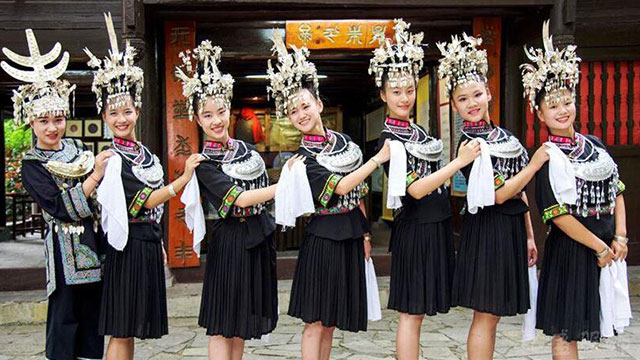
Shui Nationality
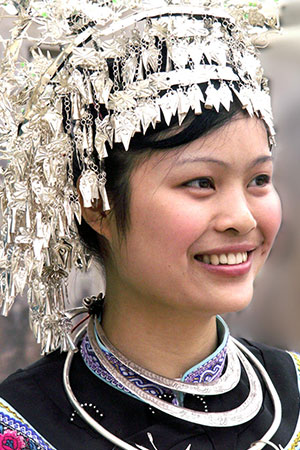
Shui Nationality
-
Han Nationality
The Han nationality is the main ethnic group in China. The Han nationality, formerly known as Han people, was named after China's Han Dynasty, which used to be called "Huaxia" or "Zhuxia". Whether in politics, military affairs, philoso - Han Zu
Views: 192 Time 2021-03-07 -
Tibet Nationality
Tibetans are one of China's 56 ethnic groups and the indigenous people of the Qinghai Tibet Plateau. It is mainly distributed in Tibet Autonomous Region, Qinghai Province, Western Sichuan Province, Diqing in Yunnan, Gannan in Gansu and other regions in Ch - Cang Zu
Views: 60 Time 2021-03-07 -
Yi Nationality
Yi is the sixth largest ethnic minority in China. Its national language is Yi. It belongs to the Yi branch of the Tibetan Burmese language family of the Sino Tibetan language family. There are 6 dialects in the north, East, South, Southeast, West and cent - Yi Zu
Views: 34 Time 2021-03-07 -
Bai Nationality
Bai nationality is the 15th largest ethnic minority in China, mainly distributed in Yunnan, Guizhou, Hunan and other provinces. Among them, the Bai nationality in Yunnan Province has the largest population, mainly living in Dali Bai Autonomous Prefecture, - Bai Zu
Views: 52 Time 2021-03-07 -
Tujia Nationality
Tujia nationality (Tujia Language: bifzivkar) is a nation with a long history. It has a national language. It belongs to the Tibetan Burmese language family of the Sino Tibetan language family, close to the Yi language branch. There is no national languag - Tu Jia Zu
Views: 47 Time 2021-03-07 -
Lisu Nationality
Lisu nationality belongs to the South Asian type of Mongolian race. Its national language belongs to the Yi branch of Tibetan Burmese language family of Sino Tibetan language family. Its characters are divided into new and old Lisu languages. It generally - Li Su Zu
Views: 32 Time 2021-03-07 -
She Nationality
She nationality is one of the ethnic minorities with a small population in China, with a total population of 708651 (2010). It is distributed in some mountainous areas in more than 80 counties (cities) in Fujian, Zhejiang, Jiangxi, Guangdong, Guizhou, Anh - She Zu
Views: 36 Time 2021-03-07 -
Daur nationality
Daur nationality is one of 56 nationalities in China, mainly distributed in Molidawa Daur Autonomous Banner of Inner Mongolia Autonomous Region, meiris Daur autonomous region of Qiqihar City, Heilongjiang Province and Ewenki Autonomous Banner; A few live - Da Wo Er Zu
Views: 31 Time 2021-03-07 -
Bulang Nationality
Bulang Nationality is a minority nationality with a long history. The national language is Bulang language. It belongs to the Bulang branch of the mon Khmer language family of the South Asian language family. It can be divided into Bulang and AVA dialects - Bu Lang Zu
Views: 36 Time 2021-03-07 -
Tajik Nationality
Tajik belongs to the Europa Indian Mediterranean type. The national language is Tajik, including two dialects of selekkur and wahan. It belongs to the Pamir branch of the Iranian language family of the Indo European language family. - Ta Ji Ke Zu
Views: 40 Time 2021-03-07 -
Dulong Nationality
Dulong nationality is one of the ethnic minorities with a small population in China and the least populous nationality in Yunnan Province. It uses Dulong language and has no national characters. - Du Long Zu
Views: 105 Time 2021-03-07 -
Hezhe Nationality
Hezhe nationality is a minority nationality with a long history in Northeast China. Its national language is Hezhe language, which belongs to the Manchu branch of the Manchu Tungusic language family of Altai language family (there is also a view that it s - He Zhe Zu
Views: 189 Time 2021-03-07
